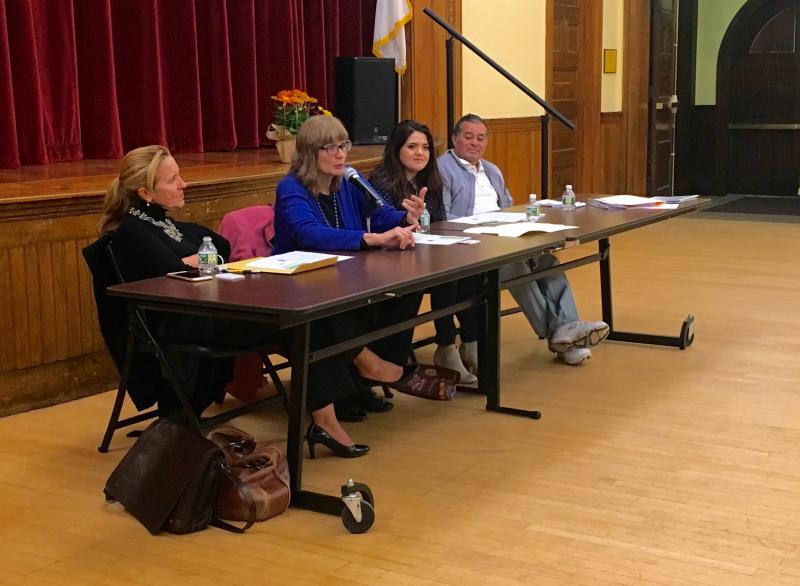Immigration education comes to Music Hall
Immigration can be a tough topic to tackle, but directors from the Immigrants’ Assistance Center and the Community Economic Development Center in New Bedford stopped by the Marion Music Hall to talk on a panel about local and national immigration.
The lecture was hosted jointly by the Elizabeth Taber Library and tri-town's League of Women Voters.
Helena DaSilva Hughes immigrated to the United States from Portugal when she was 10, and has been working at the Immigrants’ Assistance Center for decades.
“People come to the center for anything or everything,” she said. “We help them navigate.”
Corinn Williams is the executive director at the Community Economic Development Center, where she works as an advocate for immigrants.
“We try to make connections to people as they try to make lives for themselves,” Williams said. “It’s a time to be concerned about our neighbors.”
The current political climate was referenced numerous times, as calls for a border wall and immigration bans dominate the national conversation.
“Since the [2016 presidential election] we have seen a 2,000 person increase at the [Immigrants’ Assistance Center],” Hughes said. “The number of people applying for citizenship quadrupled because of [President Donald Trump].”
Hughes said that after the 2016 election, New Bedford High School officials called and said that there was anxiety at the school due to students being worried their parents would be deported.
Williams brought along Priscilla Gamboa, a student who volunteers at the Community Economic Development Center. Gamboa and her family moved to the United States in 2001.
She is currently a documented immigrant through the Deferred Act for Childhood Arrivals. However, due to the current administration canceling DACA, in a year and a half Gamboa’s documentation will expire.
“We don’t know what comes next,” she said. “We’re all left in a limbo. It feels like we’ve been used as a player’s chip.”
David Oliva also spoke on the panel. Oliva, who emigrated from El Salvador, spoke on behalf of the TPS Committee, which is the committee for those with temporary protected status. Immigrants with TPS are allowed refugee-like status to escape civil wars, natural disasters or epidemics that occurred in their home countries while residing in the United States.
Currently, Oliva said through Gamboa as a translator, TPS is up for scrutiny, with the status already being revoke for certain countries, such as Haiti.
“The U.S. will suffer economically,” Oliva said. “TPS workers bring economic growth.”
Oliva also mentioned the problems the cancellation of TPS would cause for families. Parents with TPS may have children who were born in the United States, making them citizens. Should the parents lose their protected status, they face a dilemma.
“Will they take [the kids] back to a home country that they don’t know?” Oliva asked. “There is high crime and gangs in those countries. Youth suffers.”
Family and children were also mentioned often, as deportation threatens to separate families.
“Parents have to have a plan in case immigration comes knocking,” Hughes said. “It’s very stressful for the families.”
Both organizations take volunteers and donations to help local immigrants. For more information, visit www.immigrantsassistancecenter.org or cedcnewbedford.org














